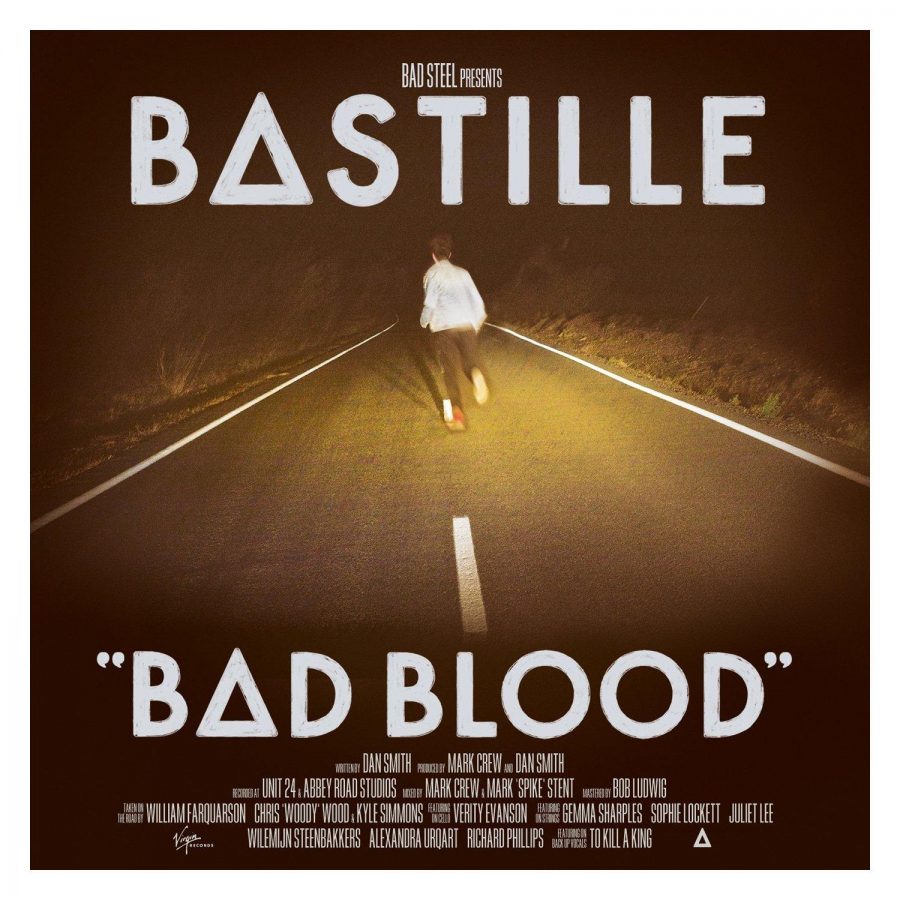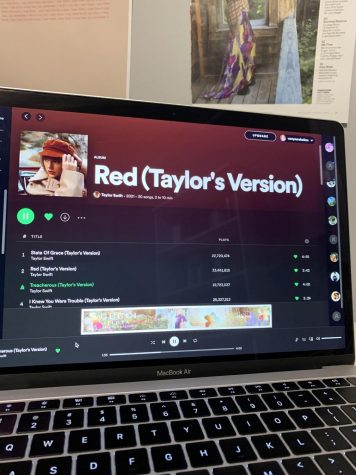BΔSTILLE – Bad Blood Review
A solo project started by Dan Smith has now been transformed into the sensation that is Bastille. The English rock and pop indie band released their first studio album in the UK on March 4, and later on in the U.S. on Sept. 3. The album, Bad Blood, contains some promising and some irritating songs that have references to literature pieces, the Bible, and even mythologies. A pop album with relatable lyrics and enjoyable beats, Bastille certainly does not disappoint in this debut effort.
The band starts off their album with their most famous and overplayed song. “Pompeii,” the only song from Bad Blood that hasn’t gotten a break from the radio is most known for its catchy phrases such as “How am I gonna be an optimist about this?” and for containing tragic lyrics behind its pop choruses. “Pompeii” was the album’s number one single, and as of Dec. 2, it is rated number 48 on the Billboard’s Hot 100.
Most of the songs featured in this album are painfully similar to each other in terms of beats and instrumentals. Songs such as “Icarus,” “Weight of Living, Pt. 1” and “The Silence” do a poor job in trying to truly represent the many diversities of the band. The lyrics are bland and mediocre, yet at the same time are enough to excite the average teenager obsessed with “indie” bands. The start of these songs are promising, with “Icarus” even having a reference to the Greek mythological creature Icarus, but after about 40 seconds into these songs and one gets tired of the audio.
Bastille showcases their true writing abilities in “Weight of Living Pt. 2” and “Daniel in the Den.” With electronica influences and even Biblical references, these two songs contain lyrics that give hope to the future of this band. “And for every king that died, Oh they would crown another” from “Daniel in the Den” and “You’ve lost that child,” “You’re under the weight of living” from “Weight of Living Pt. 2” carry on themes about childhood, growing up and realizing that adulthood isn’t all that it appears to be.
Smith’s voice surely does not go unrecognized on the album. “Oblivion,” “Overjoyed” and “Laughter Lines” are all slightly less mellow and include piano and violin instrumentals to allow Smith’s voice to shine. These songs are refreshing after hearing all the generic pop songs from the rest of the album. They each deliver their meanings beautifully and allow the listener to enjoy the softer side of Bastille and appreciate the different sides they can provide.
Bastille has proven to enjoy their own pop influences, and so they try to incorporate these upbeat and dramatic choruses and instrumentals in almost all of their songs. “Faws,” “These Streets,” “Bad Blood,” “Things we lost in the fire” and “ Laura Palmer” are all typically related to each other in terms of their electronica and fast indie rhythms; however, they do try to bring out hidden meaning behind their lyrics about lost friendships and personal hardships while still maintaining a positive reaction. Bad Blood concludes with “Get Home,” repeating “How am I gonna get myself back home?” continually for almost most part of the song, proving to their audiences that they will always stay true to their own pop genre.
The band also plans to republish the album with All This Bad Blood, released on Nov. 25. The new album will include rare songs and covers, also including their most recent single on All this Bad Blood, “Of the Night.” Though Bad Blood contains many songs with similar rhythms and average lyrics, Bastille is still able to win the heart of their fans. With a lead singer who has a magnificent voice and good looks, Bastille offers a perfect combination of characteristics that make up a great pop band.












